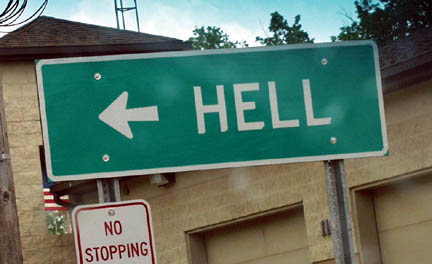This is a cross-post from Just Journalism.
Yesterday The Guardian’s Datablog published the results of the Global Peace Index, which ranks the ‘calm’ and ‘peacefulness’ of 153 countries across the world. The index takes into account a broad array of factors, including crime rates, internal and external relations and conflicts, arms sales, military size, democratic indices and social indicators. In the overall ranking of countries Israel – not including the Palestinian territories – ranks 145 out of 153, its lowest ever rating.
The methodology of the index, devised by the Economist Intelligence Unit, was questioned by the unit’s sister company, The Economist, at its inception in 2007. ‘Give peace a rating’ suggested that ‘the index will run into some flak’, as it was weighted against more militarised countries:
‘By unconditionally endorsing low military budgets and marking down high ones, the index may seem to give heart to freeloaders: countries that enjoy peace precisely because others (often America) care for their defence.’
The Guardian makes it clear that the 2011 Global Peace Index takes into account events during the Arab Spring, as it ‘sees dramatic falls in middle east countries after the Arab spring’. However, several key Arab states that have typified the last several months of regional unrest, seeing mass demonstrations and thousands of deaths, continue to rank far above Israel on the peace scale.
Egypt, which this year saw hundreds of thousands of people take to the streets of Cairo to bring down their government, witnessed pitched battles in Tahrir Square and which saw over 800 civilians deaths in the uprising, is ranked 73rd of 153 countries. Libya, which has been in the throes of a full civil war for the last two months, still ranks two above Israel on the peace index.
Syria, with nearly 1,000 deaths reported during the repression of protests there since March, and with reports of mass graves found outside the city of Deraa and the apparentmass execution of soldiers who refused to fire on civilians, ranks 29 places above Israel.
Israel even ranks seven places below Yemen in the index, regardless of the fact that even before the recent uprising Yemen was considered one of the least stable countries in the world, with The Guardian’s Brian Whitaker asking back in 2009 whether Yemen was about to become a fully ‘failed state’. Interestingly, that year Yemen ranked 22 places above Israel on the index, an even bigger margin than today.
Analysing the Global Peace Index in greater detail is also highly illustrative. Israel scores well on indices indicating the state of its democracy, with its ‘Electoral process’ scoring 8.75/10, ‘Political participation’ scoring 8.33/10 and with a ‘Political Democracy Index’ of 7.48/10. This compares to countries such as Saudi Arabia, which scored 0/10 for Electoral process, 1.11/10 for Political participation and 1.84/10 on the Political Democracy Index. However, regardless of these positive characteristics of the Israeli state, it still stands 44 places below Saudi Arabia in the overall ranking.
One of the most striking features of the Global Peace Index is the rating given to Israel in the category of ‘Disrespect for human rights’. Israel is given a 5/5 – the worst possible rating – alongside countries such as North Korea. Iran, which has killed between 4,000 and 6,000 people for their sexual preference since 1979, gets a 4/5 disrespect for human rights rating. Saudi Arabia, which arrests women who drive, also received a better rating (4/5) than Israel in the same category.
Perhaps one of the most indicative results in the index’s ‘Disrespect for human rights’ ranking is the 1.5/5 given to Bahrain. The Gulf kingdom, which saw its own wave of demonstrations that were violently repressed earlier this year, has been gravelycondemned for ‘systematic’ violations of the Geneva Convention, after targeting medical staff who treated the wounded during demonstrations in the country.
Reports suggest that doctors, nurses and other hospital workers were beaten, arrested and ‘disappeared – held incommunicado or at undisclosed locations’ for treating injured protesters. Richard Sollum, deputy director of Physicians for Human Rights, writing in The Independent in April, said:
‘In two decades of conducting human rights investigations in more than 20 countries, I have never seen such widespread and systematic violations of medical neutrality as I did in Bahrain… These attacks violate the principle of medical neutrality and are grave breaches of international law.’
Regardless of such reports, Bahrain’s ‘disrespect for human rights rating’ is still 3.5 points better than that of Israel, and it sits 22 places higher than Israel in the overall Global Peace Index.


